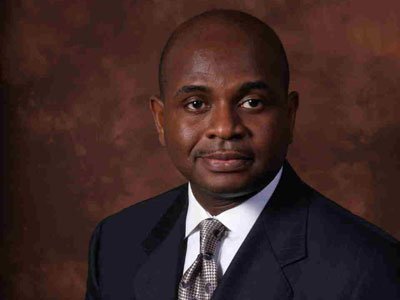Presidential aspirant under the Young Peoples Party (YPP), Prof. Kingsley Moghalu has disclosed why he should be considered for the office of president in the 2019 election.
He revealed his credentials in an interview with New Telegraph published on Monday.
Read below:
I am a normal Nigerian professional leader and also global leader. I am 55 years old and I have lived up to 25 years of my life here, so I know this country very well. Also, I am somebody who has lived many years outside Nigeria by the virtue of my career. I simply had an international career; I did not emigrate out of Nigeria because there is a difference between joining the international civil service of the United Nations (UN) and saying that I am fed up with Nigeria, so I want to go live abroad.
I had a sense of responsibility growing up; you had to sacrifice because you were the leader. You had to maintain probity; you had to live up to expectations from your parents and younger siblings.
These were little but important aspects that shaped my personality and world view. As I was growing up, I became very interested not just in international affairs, but in the position of the black man under the sun and why Africa is poor. And I as went around the world in the course of my career in the UN, it occurred to me why some nations prosper and while others are poor; why some nations remain are in conflict and how to fix broken nations.
I learnt nation building over 17 years, from Angola to Croatia and Cambodia, among other examples. Many people don’t know that I was a Political Officer at the UN during the Rwandan genocide and I was on the Rwandan desk. All that happened in that genocide, I know like the back of my hand.
So, I played a very direct role in the stoppage of that genocide and later on, I opted to serve in the UN War Crimes Tribunal for Rwanda, which was in Arusha, Tanzania. I was the Legal Adviser and spokesman of the tribunal for five years.
We brought to justice, the big men whose impunity led to that genocide. We tracked them across the world because they had all escaped after the war, negotiated agreements that led to their arrests, brought them back, tried and sent them to prisons in various countries that the UN has agreements with.
So, the rule of law is something I am very familiar with.
After that, my career took another dimension, I moved into the Global Fund in Geneva, Switzerland, to fight HIV/AIDS, tuberculosis and Malaria. I now moved into development finance and for the first time in my career, I was no longer just meeting ambassadors and top government officials. I began to meet top businessmen like Bill Gates and my eyes open to the way the international community was shifting; the power of the private sector. The power of business was becoming more than the diplomats in suits.
So, there was a certain trend in the world that began to happen. Private capital flows, for the first time overtook foreign aid flows in terms of volumes and so on.
As a very senior official of the Global Fund, where I was the Director for Global Partnerships and Resource Mobilizations, I helped to raise over $20 billion from the G8 countries and other nations to make social investments in Asia, Latin America and Africa, including Nigeria. After a while at the Global Fund, I left to set up a consulting firm in Switzerland on global strategy and risk management and we were advising multi-nationals that want to do business in Africa on how to enter, plot strategy, manage risks and gain market strategy. I was doing that when I was invited back to Nigeria by President Umaru Yar’adua and the then governor of the Central Bank of Nigeria (CBN), Sanusi Lamido Sanusi, in 2009 as deputy governor of the CBN. We carried out a lot of reforms, which Nigerians are still enjoying till today.
We stabilized the banking system, which informed why no Nigerian bank failed after the global financial crisis and no depositor lost one kobo. It wasn’t so elsewhere in the world. In the rest of the world, the banking system lost about $14 trillion. It didn’t happen in Nigeria because Sanusi as governor of the CBN and people like me as his deputy made sure that it did happen.
We restructured and recapitalized the banks, fired some CEOs to save the sector. I shepherded the BVN as the deputy governor of the CBN.

